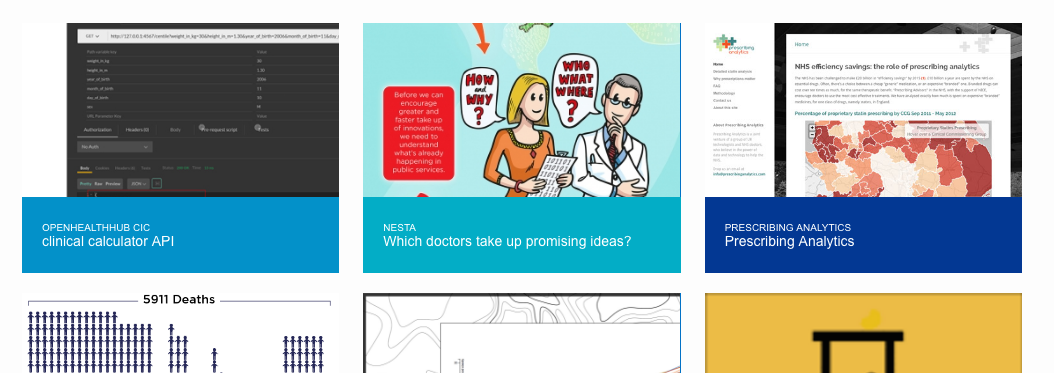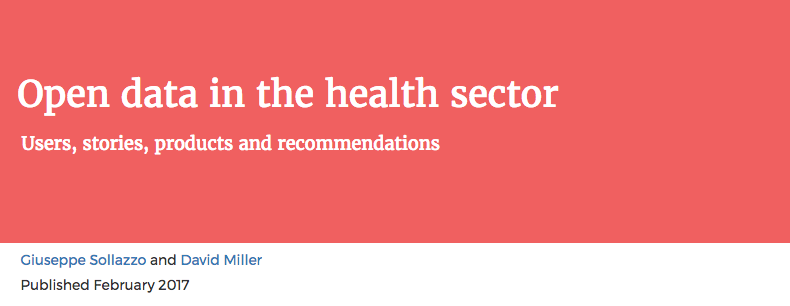Our report on open data in health

Last year we were commissioned by NHS England to research the needs and experiences of people using open data about health. NHS England wanted to have a strong evidence base from which to develop their open data policy and programme agenda. We conducted a series of formal interviews and informal conversations as well as some desk research before writing up what we learned as a report.
Today we’re publishing that report online. We believe that our two key recommendations would go a long way to addressing the most pressing issues that we discovered. We’ve also included summaries of individual user interviews for those who want to really understand the detail of life as an open data user.
If your organization is interested in this kind of work, we’d love to talk with you and see if we can help - do get in touch.
It was fascinating to hear stories from a wide range of people who use open health data. Many of their experiences mirrored what we found when working on projects such as Prescribing Analytics and what we hear from people working on open data projects at NHS Hack Day.
Although some specific datasets or teams are excellent, many issues remain with the quality of data publishing in health. Data publishing is precisely the kind of problem that the phrase It’s not complicated; it’s just hard could have been coined about. Many of the issues people face are entirely tractable if we take the time to understand their needs and respond to them thoughtfully. It’s great that NHS England is conducting this kind of research, and we hope that they can use this evidence to move forwards with open data in health along with their colleagues from other organizations.
One of the other features to emerge from our research was the lack of data routinely used as part of clinical practice in the NHS. In our work building digital tools for clinicians we regularly find that they don’t have access to basic data about their activity. The Wachter report recently highlighted the lack of digital capability at many institutions in the health sector. There is also an equivalent lack of capability to make better use of data, and this is likely to make it significantly harder for clinical services to adjust well in the face of a changing population and the current aggressive financial environment.
Although it was decidedly out of scope for this report to address these challenges, we would argue that in order to “exploit the information revolution” as NHS England put it in 2014’s Five Year Forward View much work needs to be done to capture better data, make it available at the point of service delivery, and to build the capability to use that data routinely to make better decisions.
Many thanks to all of the interviewees, everyone who talked to us or provided feedback on drafts, and especially to Giuseppe Sollazzo who did the majority of the real work on this report - conducting interviews, and analysing the common issues.
If you have any feedback on the report itself, do let us know what you think at hello@openhealthcare.org.uk

